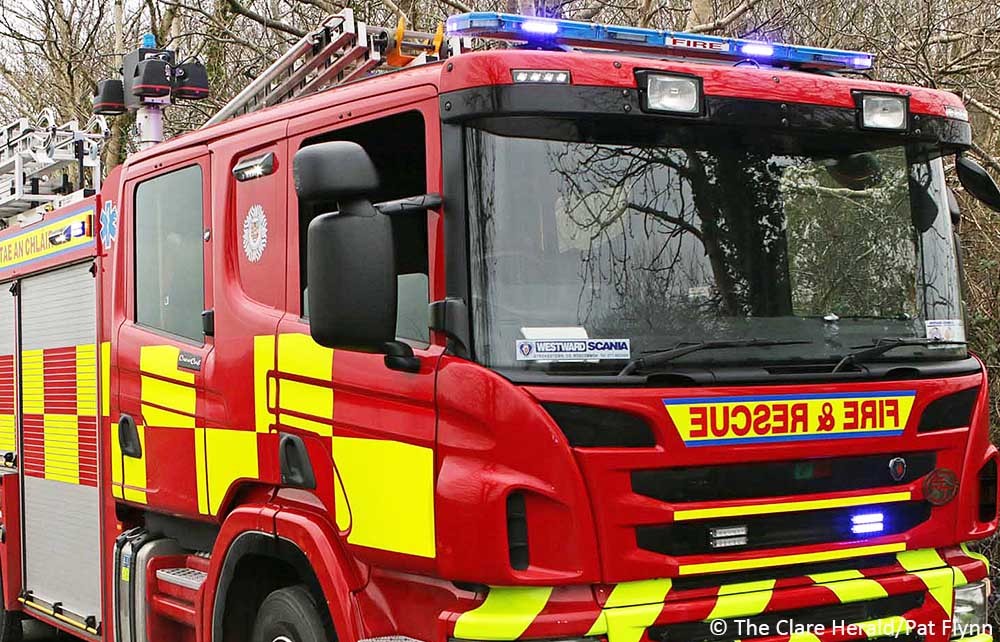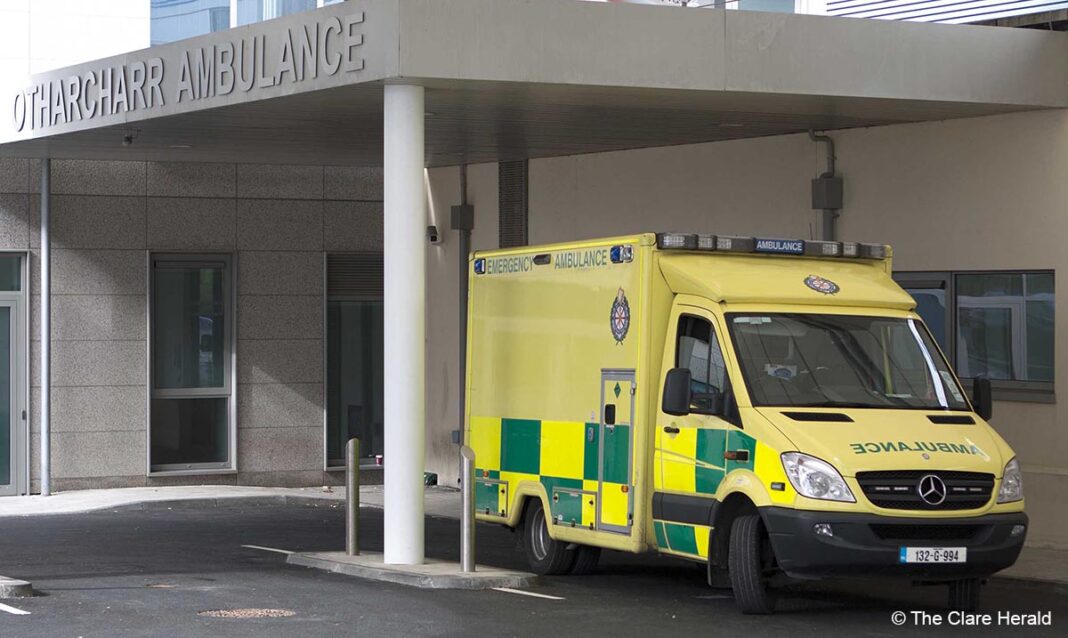The nearest available ambulance to an elderly man who subsequently died after suffering a cardiac arrest, was 80 kilometres away in another county.
The HSE’s National Ambulance Service (NAS) has been called on to mobilise the local fire brigade to emergency medical calls as soon as it’s known that no ambulance is available to respond.
This follows the death of man in West Clare on August 3rd when there was no ambulance available locally and the nearest was over an hour away in Limerick City. The ambulance based at the nearest station in Kilrush, located just two kilometres from the scene, was dealing with another call at the time.
NAS controllers sent a lone paramedic in a rapid response vehicle (RRV) from Limerick City while an advanced paramedic, specially trained in advanced life support (ALS) skills, was dispatched in another RRV. These vehicles are not designed to carry patients however.
Concerns have been expressed that it took ten minutes from the time the National Ambulance Service received the emergency call to dispatch the local fire brigade and an RNLI lifeboat volunteer first responder.
Despite the best efforts of neighbours, local first responders and fire service personnel to resuscitate the man, he passed away at the scene. It took 36 minutes for the first ambulance resource to reach the scene.

Local councillor, RNLI Lifeboat member and trained first responder Ian Lynch, who attended the call in Cappa on August 3rd, has repeated his calls for the HSE to dispatch the fire brigade to emergency medical calls as soon as it’s know that it will take some time for a ambulance to reach a scene. Fire service vehicles in Clare are crewed by trained first responders and are equipped with defibrillators.
Councillor lynch has expressed anger at NAS’s inability to adequately manage the ambulance service in Clare.
“How can the Minister for Health accept that NAS management are adequately performing their duties when the lives of people in Clare are being put at risk. When the NAS control centre receives a call, they know very quickly whether they have an ambulance in the area to respond. If they don’t, they need to send another service immediately, not 5, 10 or 20 minutes later. The fire brigade in Clare is equipped and ready to respond and assist and so are other voluntary groups,” he added.
“It is totally unacceptable during any emergency call but with a cardiac arrest the chain of survival is so time-critical. This is just further evidence of the lack of accountability within the health service. The Minister for Health needs to address this issue immediately and explain immediate actions that are going to be taken to ensure more likes are not put at risk but it would appear that the NAS are untouchable,” Cllr Lynch said.
The National Ambulance Service confirmed that an emergency 999/112 call was received for the Kilrush area of County Clare at 9.41pm on the 3rd August 2018.
A NAS spokesperson confirmed: “The call was triaged using the internationally recognised Advanced Medical Priority Dispatch System (AMPDS). This system prioritises calls using internationally agreed procedures and protocols thus ensuring that life threatening and potentially life threatening calls receive an appropriate response.”
“The National Emergency Operation Centre (NEOC) emergency dispatcher immediately dispatched the closest emergency ambulance which was supported by a rapid response vehicle (RRV) which arrived at scene at 22:17hrs. At the time of this incident the on duty Kilrush ambulance was engaged at an incident in Kilmihil, County Clare,” the statement said.
“The emergency call taker remained on the phone and provided pre-arrival assistance to those at scene and identified at 9:51pm that the patient was in cardiac arrest.
The local community first responders and local fire service were immediately notified,” the spokesperson said.
The National Ambulance Service has also offered its condolences to the family of the patient.
In May, a man who suffered a cardiac arrest in Kilkee Co Clare, was left waiting for 90 minutes for an ambulance while there were also delays mobilising other lifesaving resources including the fire brigade which wasn’t called until 40 minutes after the first emergency call.
NAS is already undertaking an internal review of the response to a double stabbing in Co Clare earlier this year in which one man died.
